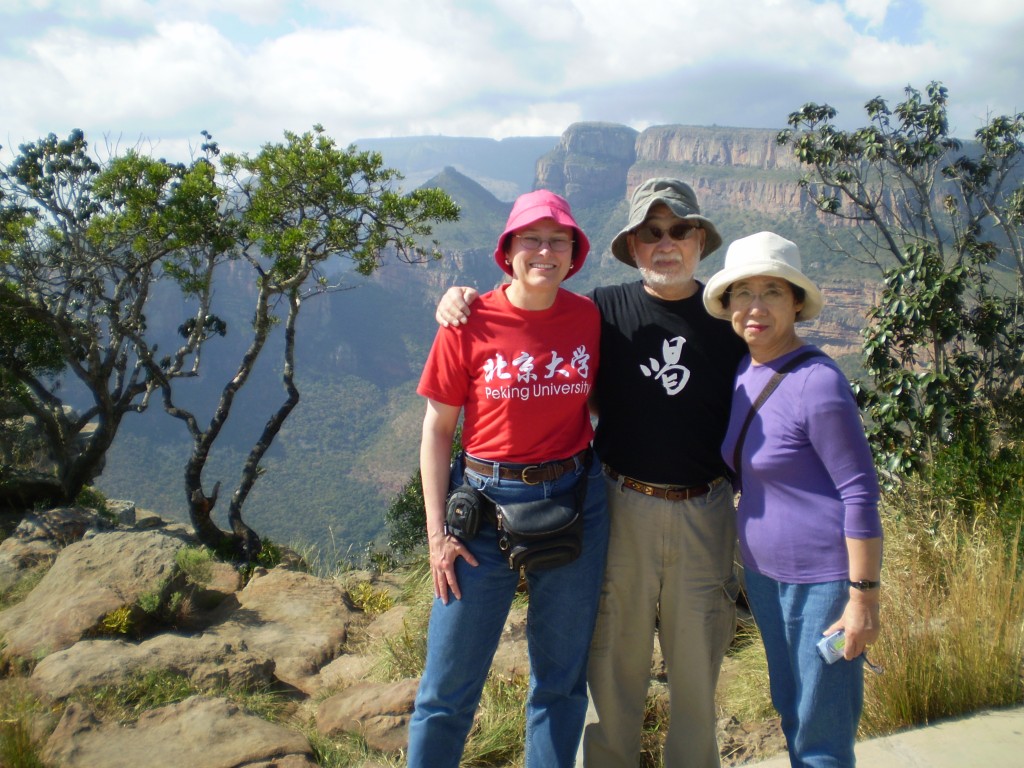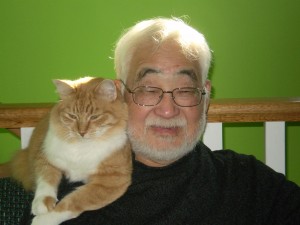THE BIBLE AND MORALITY
This article will make you uncomfortable, because morality requires honesty, and honest truth is not comfortable. But remember, God loves us all. Therefore we must love God and all creation.
Do you know that banks have been ignoring the teaching of the Bible? In Deuteronomy 23: 19, God says: “When you lend money, do not charge interest.” But, our economy is based on credit. Without interest, the system will collapse. Does that mean the economic system is against the Biblical teaching therefore is immoral by definition ? A good question. This is only one of the examples to show that it is impossible to follow every teaching of the Bible.
Do we have to follow every word of the Bible about moral ethics? The simplest answer is “no.” Why then so many self-righteous Christians justify their position about what to do and what not to do claiming it is based on the Bible? A short answer is: it is because of a widespread misuse of the Holy Book based on misreading of the truth in it. Likewise, in history the church is also grossly guilty of abuse of the Bible.
I firmly believe that the highest moral standard is found in the Bible. I really do. But each and every word of the Bible does not always give you the appropriate and correct answer to everyday practical question on ethics. A lot of the Bible contains myths. Myths and stories often express much more profound truth because it is impossible for mere words to fully express truth. This is why Jesus told stories. Every word of the Bible is not necessarily literally appropriate all the time, because many moral questions are time specific. When you have this understanding, you will find the basis of moral ethics in the Bible.
First off, what is absolutely clear is the most fundamental commandment in the Bible is, “Love God, and love your neighbour as you love yourself.” (Leviticus 19:18 and Matthew 22:40) All the rest is circumstantial. All ethical requirements must be measured against this fundamental dictum.
A journalist for the New York Times, A.J. Jacobs tried to live according to the Bible for one year and wrote a book about the experience: “ The Year of Living Biblically – Humble quest to follow the Bible as literally as possible.” In no time, Jacobs ran into legal issues of the Biblical requirements. You can not stone the person to death who cheats on wife or husband, neither can you kill your child who speaks against you, for example. (Leviticus 20) Such killing is illegal in most of the societies today.
If every Biblical commandment is not applicable today, why and how apply only selected ones? Why should you pick the prohibition of male homosexual act and condemn all homosexuals, ignoring the fact that there is no prohibition of lesbianism in the Bible. It is because preservation of clan, tribe, or race was the paramount necessity at the Biblical time when mortality was extremely high, and producing offspring was supremely important for survival of blood line: hence the prohibition of wasting semen, masturbation or sodomy. Widespread disgust about anus is another factor. Once you begin to selectively apply some rules not others, you are acting according to your interest, your preference, your taste, or your opinion, not necessarily according to God’s demand.
Let me mention an example of impracticality: A. J.Jacobs tried not to sit on anything his wife sat on when she was having period, following requirement of Leviticus. She became extremely annoyed and made it impossible for him to live in their home. She sat on everything in sight.
Another example to show contradictions in the Bible: Kings Saul and David were ordered by God to kill everyone and everything of the Amalekites, (1 Samuel 15). But Saul had a pity on the King of the Amalek and spared his life and a few animals. God was extremely unhappy about his disobedience and decided to dump him as king. On the other hand David killed absolutely every Amalekite and every animal, gained God’s favour, and became the most beloved king of Israel. How should you think of this story in terms of Ten Commandments that tell us not to kill? Examples of contradiction like this are just too many in the Bible.
The message of A. J. Jacob’s book is that you can not take the Bible literally and apply every word. You must read Biblical demands in context considering the circumstances; when and where it was written and for whom. You must find the reason why a particular commandment was necessary at the particular time and place. Once you know the basic principles motivating the commandments, you will know that the basis of all moral ethics can be found in the Bible.
You must understand that every demand in the Bible was made appropriately for a specific time, place, and circumstance. Answer to an ethical question is always circumstantial: “It all depends” should be the opening sentence of all answers. Does that means: anything goes? Absolutely not! There is a book written by Joseph Fletcher, “Situation Ethics” dealing exactly with this question. Fletcher says: the central and most basic ethical requirement for all is found Matthew 5:43 -44, 19:19, 22:37, 39 and Romans 13: 8 – 10, which are based on Leviticus 19: 18. “Love God and love your neighbours.” Jesus said all the requirements are contained in this commandment, and all others are attempts to interpret this basic law appropriately for the particular time and place. You lie for love for example.
It makes you work hard to find the right conduct when situations change. It is easier to remember a set of rules and follow them in all circumstances blindly. Unfortunately life is not that simple. You have to think when situations change. All Christian ethics are situational. Christian’s search for ethical living is hard work. It is easier to follow arbitrary rules blindly. But this is a lazy person’s way. Many dictators and dictatorial false religious leaders take advantage of this weakness and exercise their power not for God but for themselves. Remember God created us as intelligent beings in his image. Our brains are God’s gifts. Let us use our brains.
This is why, when faced with difficult ethical questions we need community of believers to think together and exchange ideas. Faith and faith-in- action are communal work. This is why we have communities of faith. The church is an essential part of our faith that works together to find answers. Good luck to any person who claim that he/she can be spiritual and lead godly life alone. Some people are gifted and can help others in this process. Some people can be trained to interpret the Scriptures to apply them in the daily life. This is why some of us can be teachers, or ministers. But all believers can do that, by learning and thinking. Besides, elders, ministers, teachers, and thinkers need help too, because none of us is perfect.
Another important factor in our effort to make right ethical decision is a need for some principles that help bridge the gap between the supreme LOVE commandment and practical challenges of our daily life. Letters written by Paul in the Bible are very helpful in this regard. When I was in the seminary, one teacher called those in-between principles “Middle Axiom.” They are accepted-by-many propositions to interpret the basic commandment in practical situations. They are points of reference like: justice, equality, kindness, respect for life, compassion, harmony; avoiding negativity like hatred, selfishness, or greed; just to name a few.
More of them are found in the letters of Paul. Romans 12 – 15, 1 Corinthians 5:1 – 7: 40, Ephesians 5:21 – 6:9, Titus 3 list some of the helpful suggestions. However, again we have to keep in mind that all those practical teachings are time and place specific, and may have to be revised when situations change and time moves on. Women do not have to wear hats in the church any more, for example. No matter how much changes come to pass, we must remember that the one and only supreme commandment never changes. If I may repeat: “Love God and love neighbours.” As Paul said in Romans 13: 8-10, that passage sums up all commandments.
Finally let us contemplate what the supreme Love commandment means.
First: What does it mean to love God? It is a passionate belief in the loving spirit that is beyond our capacity to understand. That is what loving God means to me. We, the Christians, believe God has shown himself in the life and teaching of Jesus. Even then, nobody knows how and what aspect of God Jesus revealed. The fact is nobody has seen, heard, or touched God. This is why we keep pursuing the meaning of the life of Jesus Christ with devotion and passion, because we love what we have heard so far.
On the dark side of this is: “Do not trust any human who claims to know the absolute truth absolutely. Look suspiciously at people who speak in absolute terms; be they Christian fundamentalists or the Muslim extremists. We keep looking and searching for truth with our fellow travellers passionately but humbly. Situations change and the world changes, so do you have to adapt your behaviours accordingly. You can do this if you are humble, ready to understand different circumstances.
Secondly, we must love our neighbours as we love ourselves. But who is my neighbour? Jesus was once asked this question. As an answer, He gave was a story of a good Samaritan. (Luke 10:25 – 37) Who is a Samaritan? At the time of Jesus, Samaritans were the most despised and hated people. That means, the neighbour could even be an enemy. He is not a relation nor a friend; you may not like him. A neighbour represents a person, any person. You have no choice of a neighbour. He/she represents anybody who happens to run into to you, could be one standing next to you at a supermarket cashier counter. You can extend the notion to all creation, even to a tree, a cat, or a gecko. Love your neighbour. This is the basis of Christian moral ethics.
 Thank you for visiting my website. There are seven categories.
Thank you for visiting my website. There are seven categories. Please look at the list on the right and click on the one you want to read. Each category has a list of articles from which you can choose. Feel free to post your comment in the bubble.
Please look at the list on the right and click on the one you want to read. Each category has a list of articles from which you can choose. Feel free to post your comment in the bubble.


